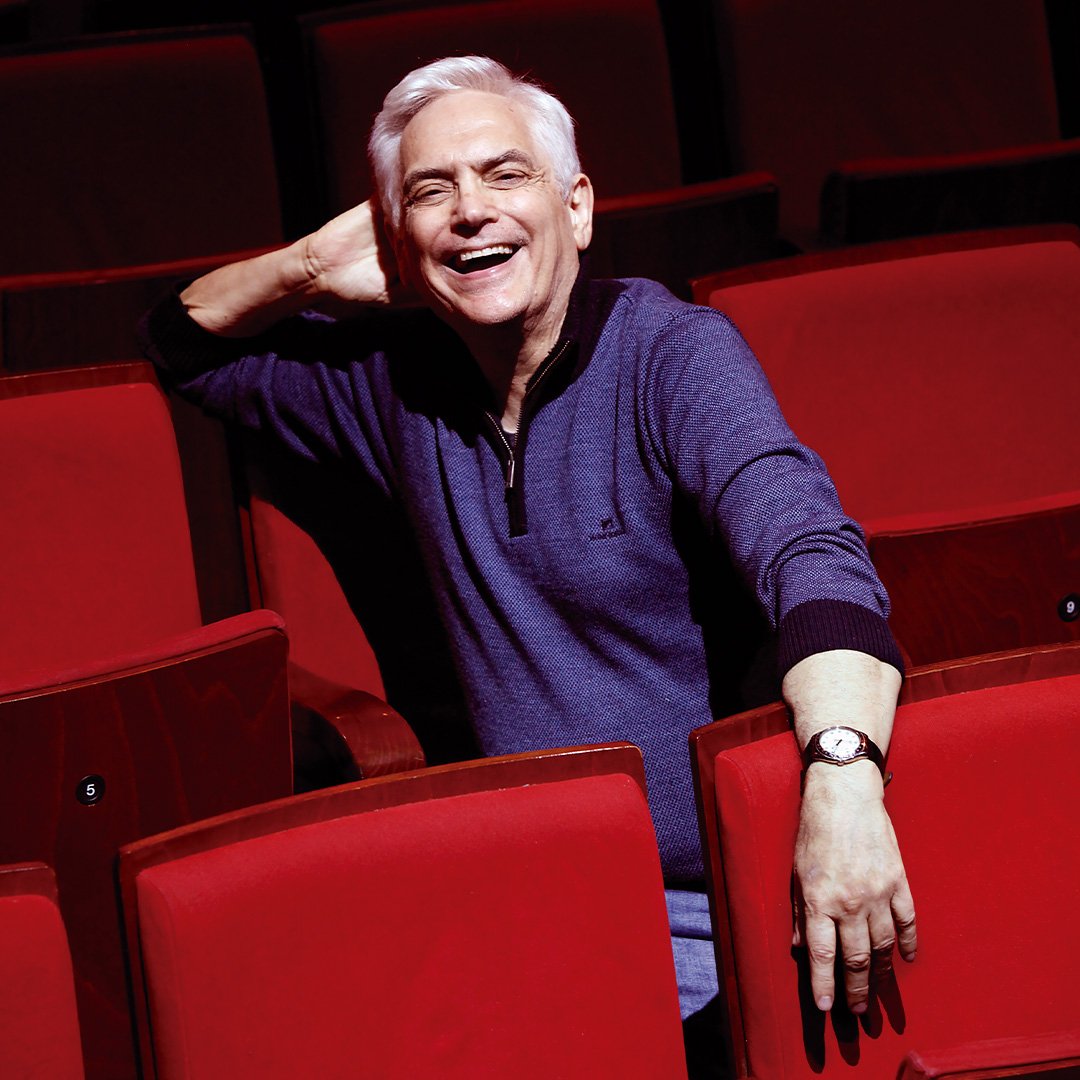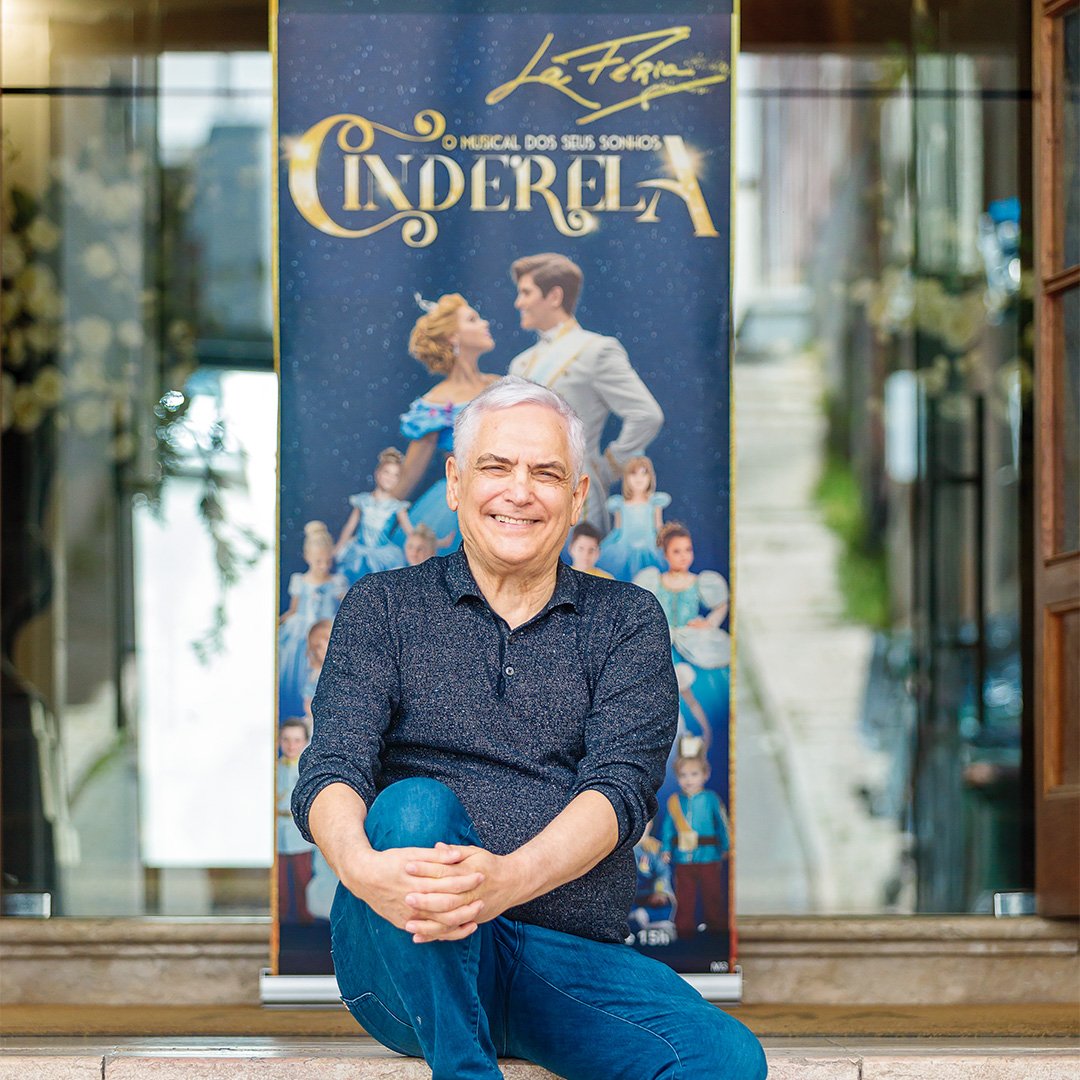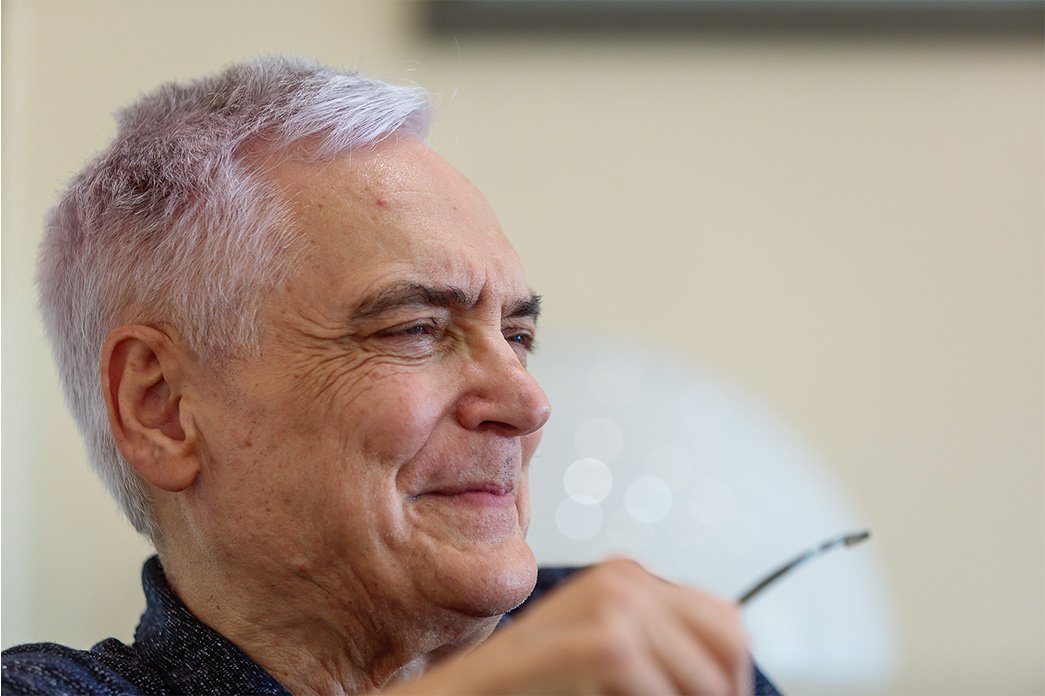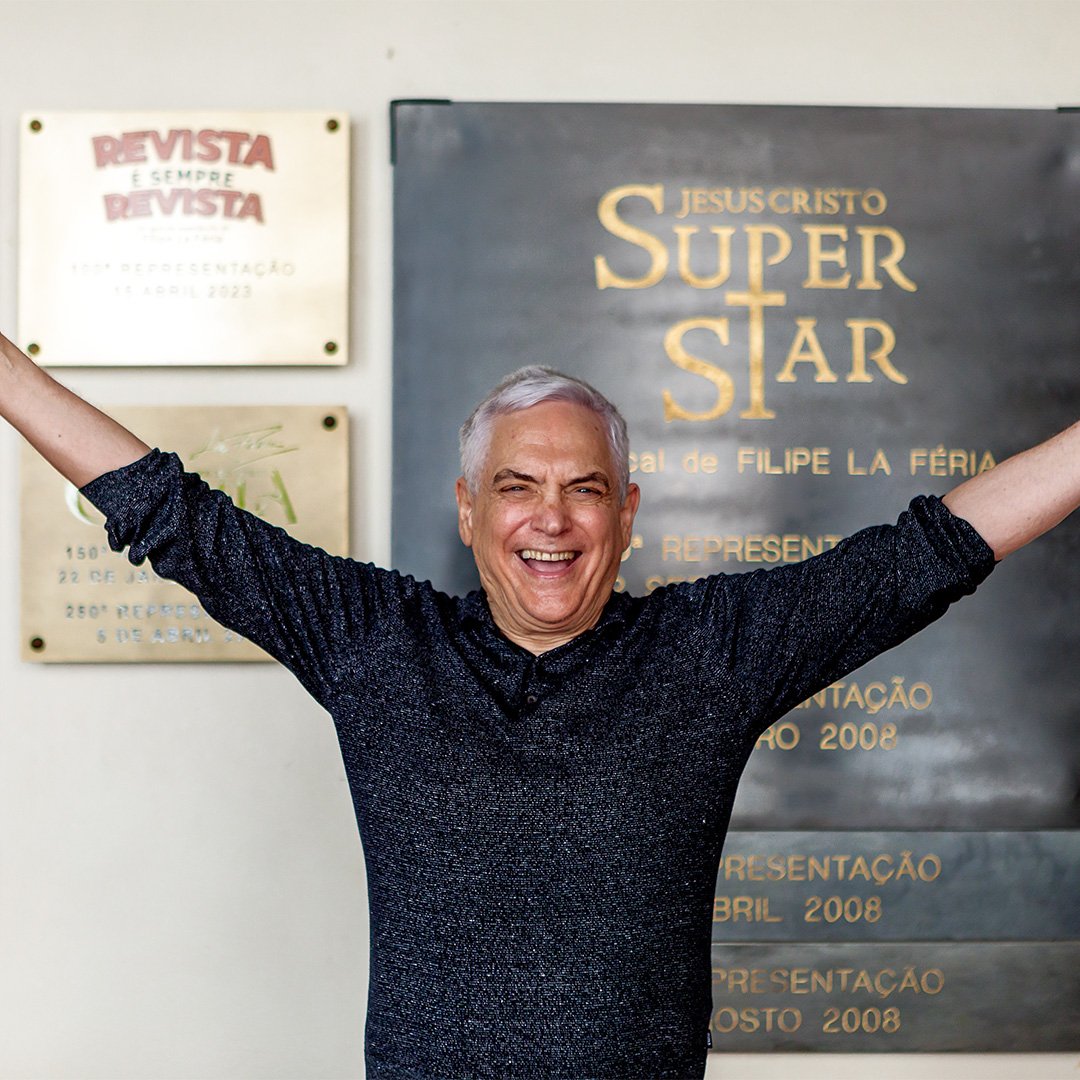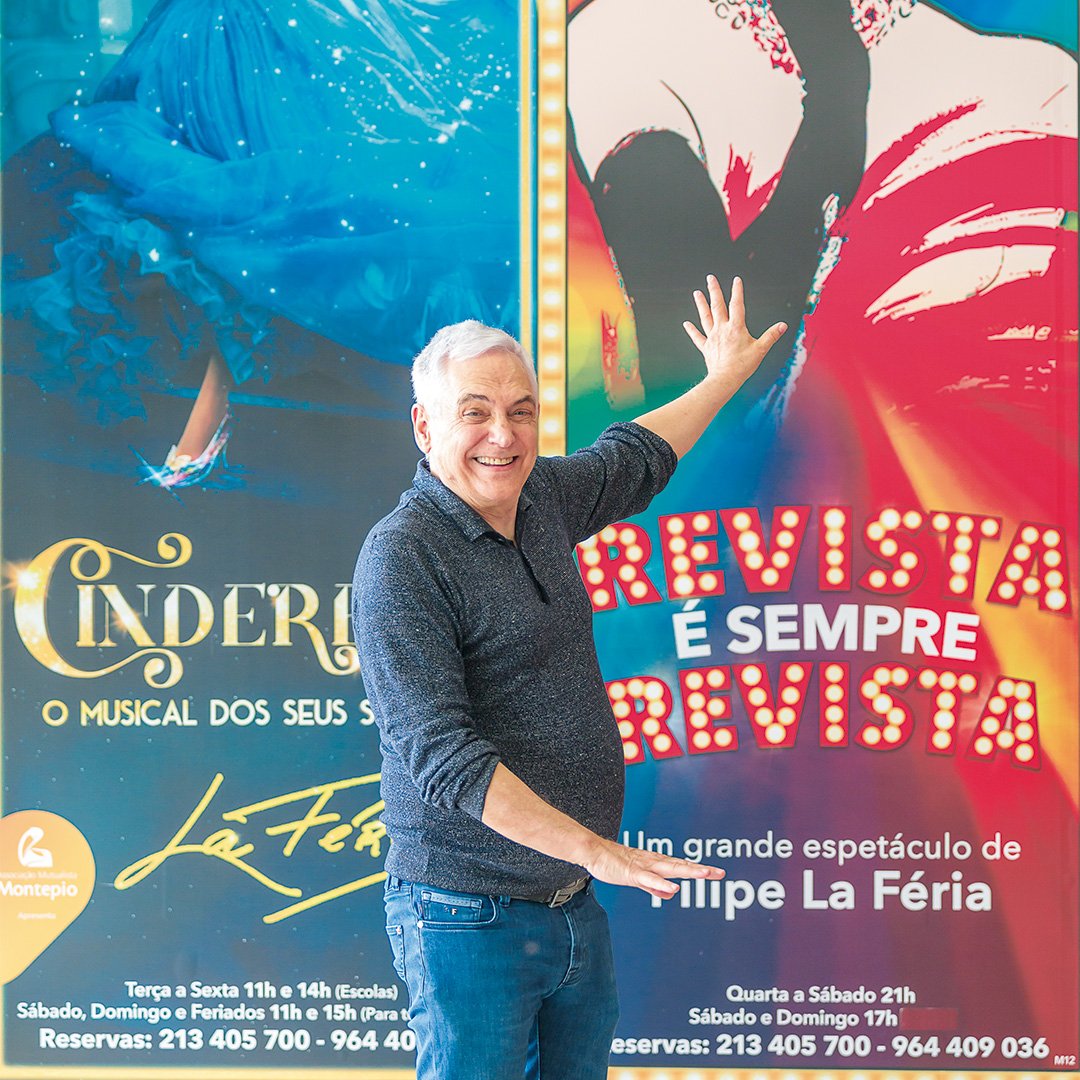You experienced the time of the Salazar dictatorship. Can you identify the big differences between the way of doing theatre before and after the 25th of April Revolution?
Before, good theatre was done, with good actors. There was a great national theatre company and an opera company. Not today. This happens because of the lack of interest on the part of the political parties. Culture is directly linked to education, and therefore education has been fading away. And so, we have to follow the cultural level of the public, so that they understand our plays. But, going back to the question, before the 25th of April, there was censorship. Today, there’s an economic censorship, that is more sophisticated. I notice that some words have been so sacralised that they lose their meaning, like the terms «freedom» and «democracy».
The Politeama is nowadays a stage, above all, for memories. Would you like to tell us the memory you cherish most?
All of them. Or better, the next one. I don’t look to the past because I miss the future.
Tell us about Cinderella, the project you are currently working on. Will the character be just as we know it or will it have a La Féria touch to it?
The character is completely original. It's a play that will stage 300 performances, in which the actors play up to six repetitions a day. Schools are coming from the north and south of the country to see Cinderella, leaving the theatre packed.
In parallel, there is Revista. A real success, because history is approached through humour. It begins in the monarchy, and always follows the timeline of Portuguese history. And, in fact, the great strength of theatre is to tell our history. I think that in Portugal we are guilty of doing too many translations, actors pretending to be Americans... Like everything in life, theatre has to be localised in order to be universal. We have to draw on our identity first and then we can make it universal.
«In Portugal, for most actors theatre is navel gazing»
What have you added to Portuguese theatre?
I don’t think there have ever been so many people seeking out the theatre. With the Amália musical, for example, there are an estimated six and a half million spectators, in addition to the 200 other shows already performed. I transmit emotion, truth and showmanship. And, in everything I do, I always keep an extract from Fernando Pessoa’s poem in mind: «To be great, be whole: nothing / of yours exaggerate or exclude». So, to communicate with others, we have to give ourselves entirely.
How did you face the times of lock down, away from the stage?
It was very difficult. I had one show that endured, Espero por ti no Politeama, which was often performed by two dancers instead of ten. I had to adapt. In the 21st century, we are realising how we are still in the Middle Ages. We understand that an epidemic can be so brutal that it can reduce us to nothing. That insignificance that we have in the face of the universe. Man is the most terrible animal in nature, that’s why he has already beaten the other animals. He is the one who knows how to kill from a distance. The lion, for example, gives its body to kill. Not us, we are hypocritical animals and, at the same time, the most intelligent.
What path lies between dreaming and making things happen?
Work. Blood, sweat and tears. My master used to tell me that an artist needs 95% work and 5% talent. I agree.
Who would Filipe La Féria be without the theatre?
He wouldn't exist. I couldn’t even live without it. I could, perhaps, have been a writer, I’ve liked writing since I was a child. I even collaborated in the Diário de Lisboa Juvenil and won prizes.
How would you like to be remembered one day?
In life, everything is forgotten. Eunice Muñoz died and today almost nobody talks about her, for example. I’m talking about her, because I always pay homage to her in Revista. The week they die they are talked about, but afterwards... So, I don’t think about the idea of being forgotten. Life is insignificant and we must have the humility to look at ourselves as Camões once said: as «this tiny bug of the earth».
